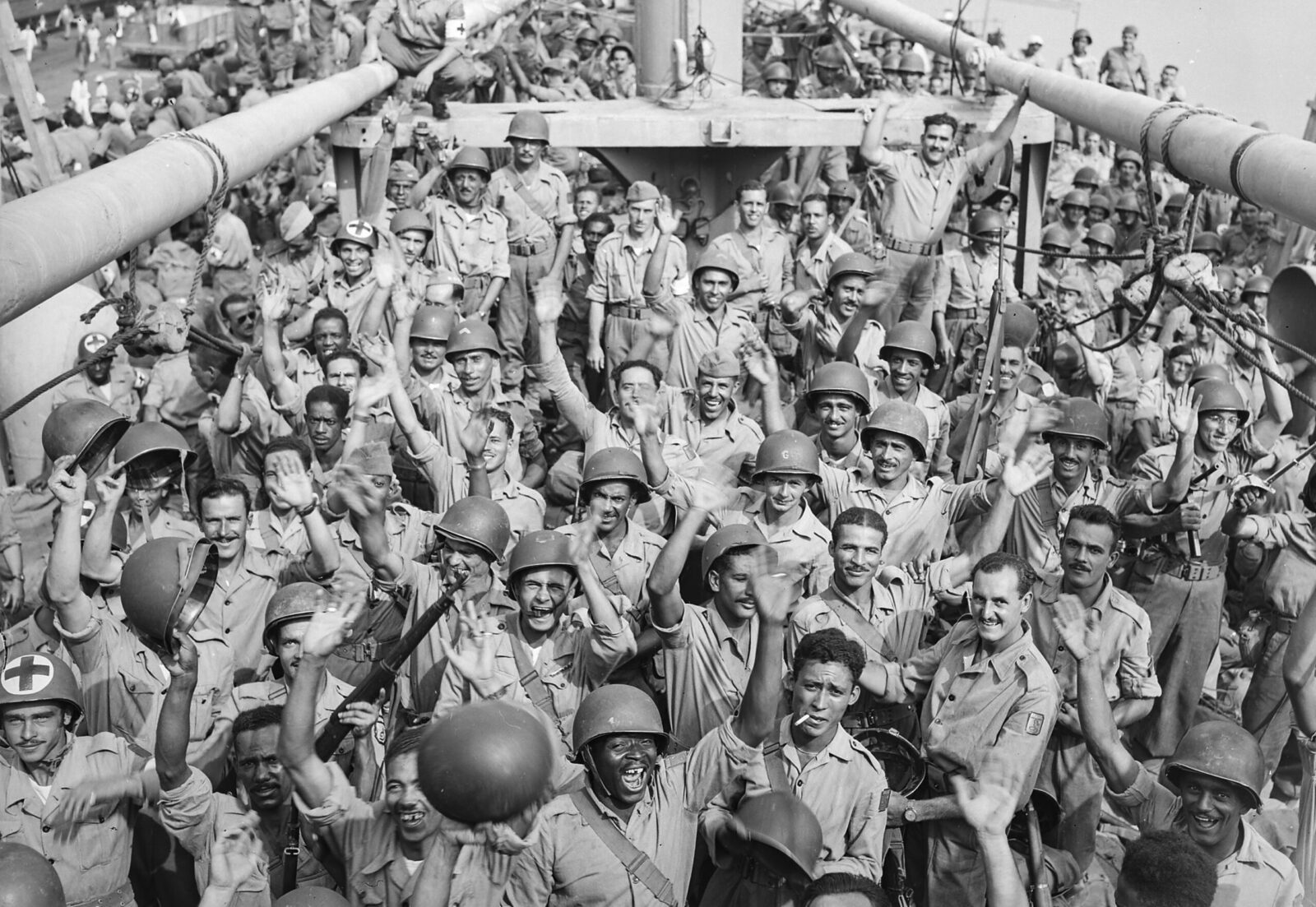Colonel Carlos Mário de Souza Santos Rosa
August 22nd, 2022 marked the 80th anniversary of Brazil’s entry into World War II. The process that led the country to participate in the greatest war conflict in the history of mankind had come and gone over the previous two years.
Brazil, at the time, was under the Estado Novo (New State) regime, established by Getúlio Vargas on November 10, 1937, in a coup d’état that would last until 1945, and was characterized by the centralization of power, authoritarianism, anti-communism, and nationalism.
Vargas’ political prowess made the period marked by great achievements, such as the creation of the Public Service Administrative Department (DASP), an organ that modernized the Federal Public Administration; the IBGE (Brazilian Institute of Geography and Statistics); the National Petroleum Council, in 1938; the Water and Electric Power Council, in 1939; the National Steel Company, in 1941, which became a milestone in the country’s industrialization, and the founding of the Vale do Rio Doce Company in 1942. The Armed Forces were supported by the government through the modernization of their means and instruction.
In foreign trade, Germany and the USA were the two main suppliers.
In the ideological field, the government was divided. On one side were the supporters of the Axis[1]: Francisco Campos, Eurico Gaspar Dutra, Góis Monteiro and Felinto Müller.[2] Getúlio himself was sympathetic to the regimes adopted in Italy and Germany, as was made clear in his famous speech on June 11, 1940, aboard the battleship Minas Gerais.[3] As pro-allies, were Oswaldo Aranha, Vasco Leitão da Cunha, Artur de Sousa Costa, Ernâni Amaral Peixoto and Joaquim Pedro Salgado Filho, among others.[4]
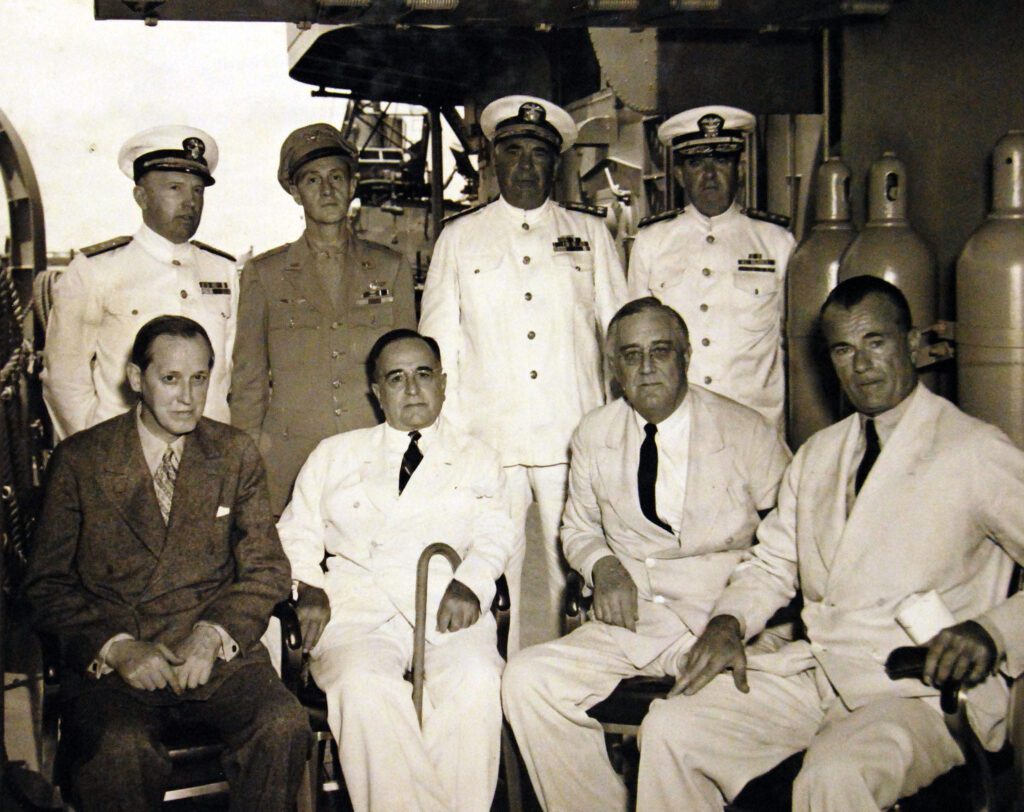
On this topic, a parenthesis is in order. The crimes against humanity committed by the Nazis had not yet been revealed. The general impression was that Nazism and Fascism were the answer to the expansion of Communism in the world and an innovative way of reconciling capital and labor.
In the USA President Roosevelt himself had adopted an economic model inspired by Mussolini’s reforms, the New Deal. Among the Jews, there were those who viewed Fascism with sympathy, as was the case with Zionist leader Vladimir Jabotinsky. It is never too much to remember that at that time, the Wehrmacht[5] won important victories in Europe and North Africa.
In the Americas, American diplomacy was based on the Good Neighbor Policy[6], seeking closer ties with Latin American countries and aiming to defend the continent’s markets against Axis penetration.
The balance began to tip in favor of the allies after the III Meeting of Consultation of the Ministers of Foreign Affairs of the American Republics, held between January 15 and 28, 1942, in Rio de Janeiro. On that occasion, through the actions of Oswaldo Aranha, Brazil showed solidarity with the USA, which had been attacked by Japan at Pearl Harbor, and broke off relations with the Axis countries. Subsequently, in the context of the so-called Washington Accords[7], Brazil began to cooperate with the US war effort.
Despite these advances, neutrality continued to be a national preference, until on August 15, 1942, more precisely at 7:12 pm, German corvette Captain Harro Schacht, commander of the submarine U-507, pushed Brazil into the war.
At that moment, two torpedoes fired by the German submarine hit the steamer Baependy, a cargo and passenger ship that was carrying the Army’s 7th Back Artillery Group with their families to Olinda, at the mouth of the Real River, on the border between Sergipe and Bahia. That same night, the U-507 claimed two more victims, the Araraquara and the Aníbal Benévolo. Two days later, the submarine torpedoed the Itagiba and the Arará, still in the northeastern coast. On August 19, ending its disastrous mission, the U-507 sank the barge Jacira south of Salvador.
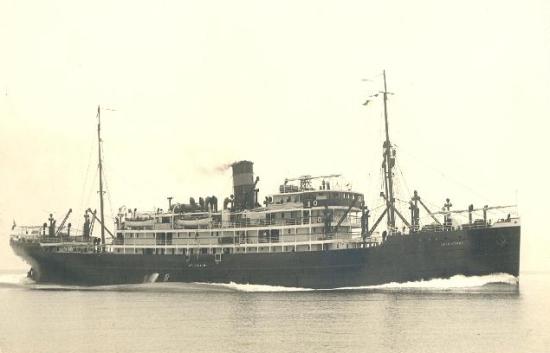
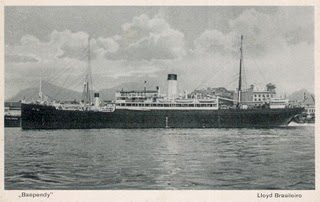
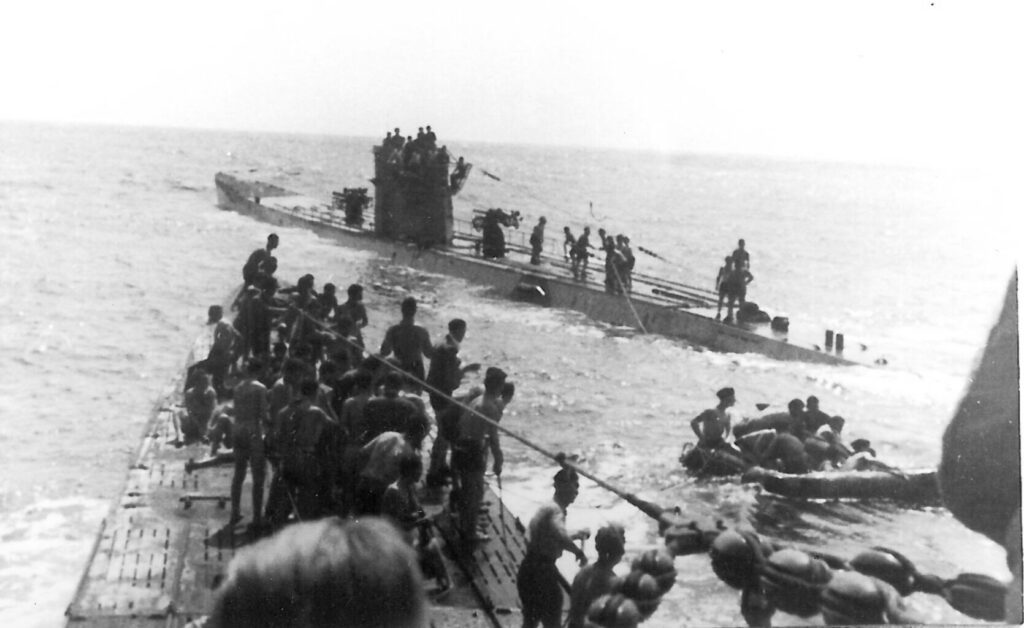
It is never too much to remember that the breaking off of relations is not equivalent to declaring war. The act of the German submariner was committed against a hitherto neutral country and against cargo and passenger ships.
Previously, 15 other national merchant ships had been torpedoed far from the country in war zones and with very few casualties. The August attacks were carried out along the Brazilian coast, causing more than 500 deaths over four days and many bodies were found on the beaches.[8]
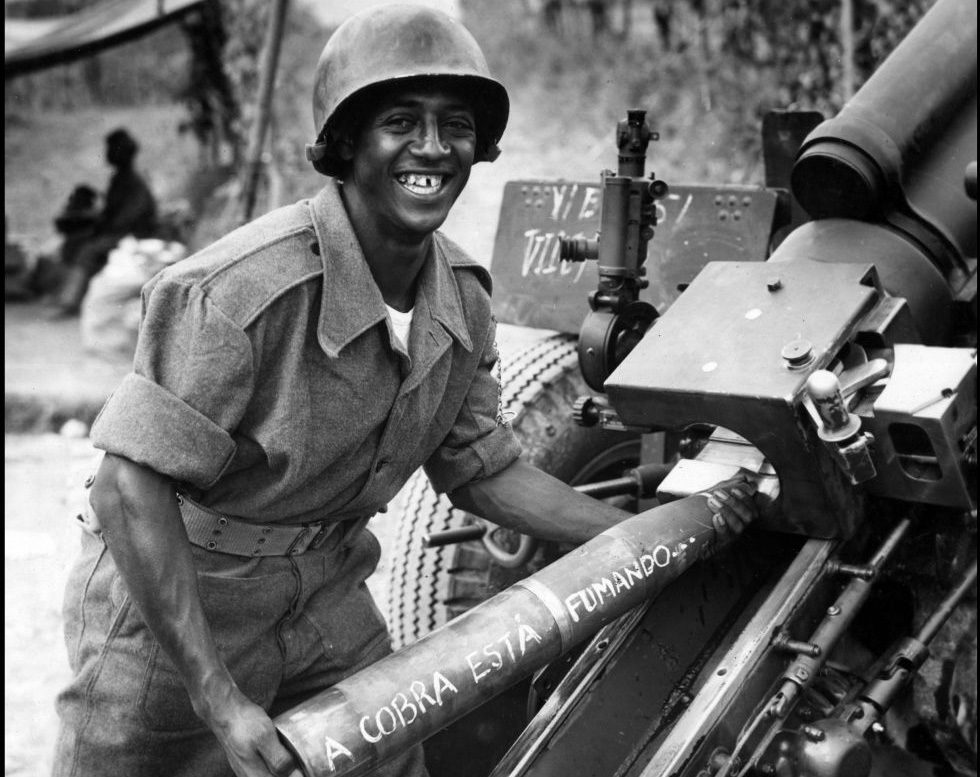
As soon as the news of the attacks was spread, the commotion that gripped the population was amplified by the publication of photos and accounts of survivors, such as that of Army Captain Lauro Moutinho Reis, a passenger on the Baependy, published in a well-known Rio de Janeiro daily:
“An officer, his wife and son clung tightly in the corridor, united, trying to fight death. One young woman, with the sudden turn of the ship, was seen to be crushed. Another, was carried away by the waters. People who tried to climb into the cabins, where they had gone for their lifeboats, were forced back by the liquid avalanche. There was no time for any rescue measures, because 30 seconds later the Baependy received a second torpedo, and completely collapsed. Within 3 minutes, it was entirely sunk. “[9]
In many cities, there were marches, many organized by the National Union of Students (UNE), protests and depredations of commercial establishments belonging to immigrants from countries that were part of the Axis.
In Rio de Janeiro, then the capital, a large demonstration went to the Guanabara Palace, residence of the President of the Republic, and heard Getúlio say “The aggression will not go unpunished”.
And it will not go unpunished. On August 22, 1942, after a ministerial meeting of about an hour and a half, Brazil declared war on Germany and Italy and officially entered World War II.[10]

“The snake would smoke.”
[1] Germany, Italy, Japan, Hungary, Romania, Slovakia and Croatia.
[2]Respectively Minister of Justice, Minister of War, predecessor of the Minister of War, and Chief of Police of the Federal District.
[3] Getúlio flirts with fascist ideas. Memorial of Democracy. Available at: < http://memorialdademocracia.com.br/card/getulio-defende-estado-forte>. Accessed on: August 22, 2022.
[4] Respectively Minister of Foreign Affairs, Acting Minister of Justice, Minister of Finance, Intervenor of the State of Rio de Janeiro and Minister of Aeronautics.
[5] German Armed Forces.
[6] The policy of good neighborliness was a specific line of American foreign policy formulated for Latin America during the Roosevelt administration. It was a new proposal for relations with the continent that basically aimed at erasing the marks of the Big Stick policy that had characterized the previous actions of the United States in the Latin American region.
[7] Result of successful talks between the governments of Brazil and the United States during the first two months of 1942, the Washington Accords basically concerned the supply of certain Brazilian raw materials to US industry and were signed in Washington on March 3, 1942.
[8] At Baependy, 270 people; at Araraquara, 131; at Aníbal Benévolo, 150; at Itagiba 36; at Arará, 20; and at Jacira, no victims.
[9] A Noite. Rio de Janeiro, August 21, 1942, p. 10.
[10] Brazil would only declare war on Japan on June 6, 1945
*** Translated by the DEFCONPress FYI Team ***
